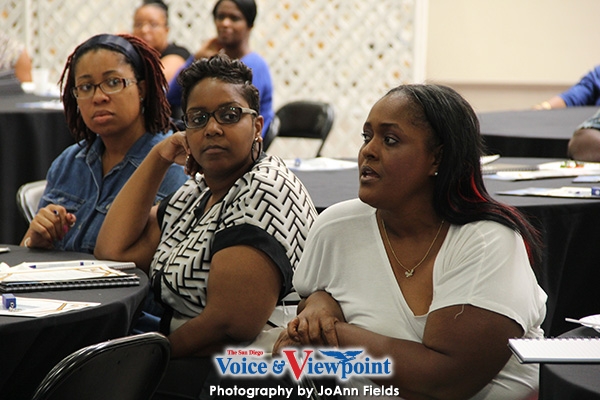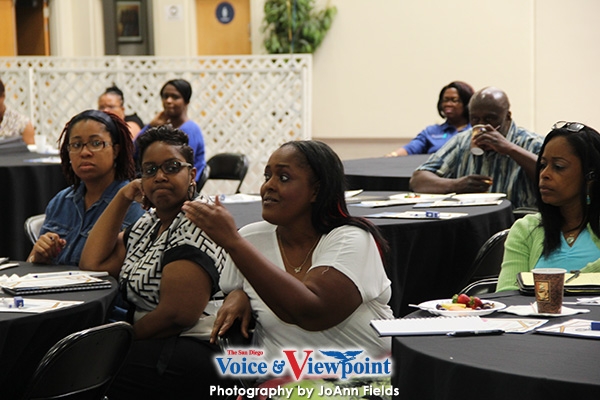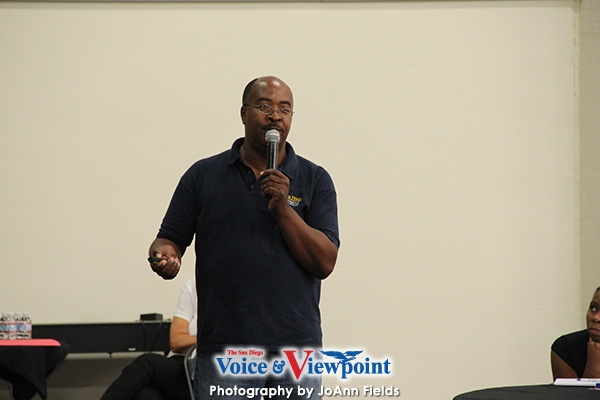
By JoAnn Fields
Contributing Writer
San Diego, CA: The University of San Diego’s Financial Aid Office and CAL-Soap hosted an Educational Summit with local Youth Pastors and Leaders to “Empower Church Leaders to Make a Difference By Supporting the Academic Achievement of Our Youth,” on Saturday, May 17, 2014 at Bayview Baptist Church located at 6134 Benson Ave, San Diego, CA 92114 in Southeastern San Diego.
Reports shared at the Summit show very little improvement for African Americans throughout San Diego County in the areas of meeting CSU/UC A-G requirements and California Standard Tests in Mathematics. In 2007, 32% of African American students completed the needed UC/CSU A-G requirements. In 2011-2012, the rate has only improved 2.7% to 34.8%. In 2008, African American students scored 19% as proficient or advanced in High School Mathematics. In 2013, of students 30% scored proficient or advanced according to San Diego County of Education Office reports.

Keisha, a concerned parent shared, “I am very involved on my student’s campus. I want to know what she needs to improve in any of her subjects whether it is in Math or English. However, not every parent can be on campus everyday due to work. Every parent should not be discounted as being not caring or negligent. I think we need to find other ways to connect our parents and their teachers. Our parents and children deserve better.”
“The presentations provided to our Youth Pastors and Leaders at the recent UCSD Financial Aid Office & Cal-Soap Educational Summit was very insightful. I see an opportunity for us to work together to ensure our students’ success. Families need to have knowledge of the resources and programs that are available to them. We have a number of programs throughout our community. However, parents and students are not connecting to them. We need to do better together,” shares Bruce Williams, community advocate and candidate of the San Diego City Council’s 4th District.

“I am concerned that very little improvement has occurred since 2007-2008. Our whole community should participate in an action plan to solve this issue. How can we talk about college when our kids are struggling in elementary school? What kind of workforce can we expect in the next decade to lead our community? I wonder who else may see this as an urgent issue. Anyone?,” states Tyrone, youth leader.
Photos by JoAnn Fields




